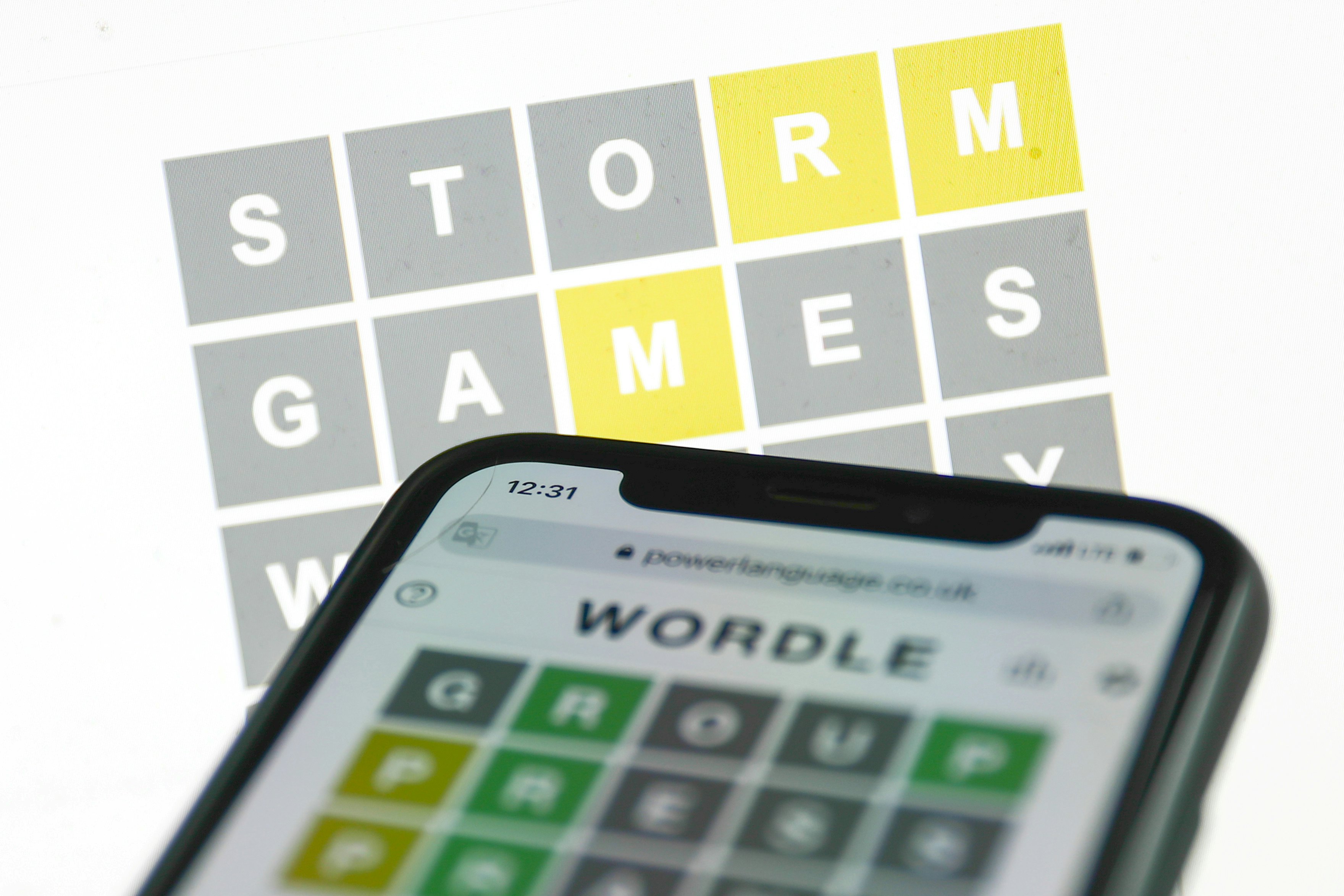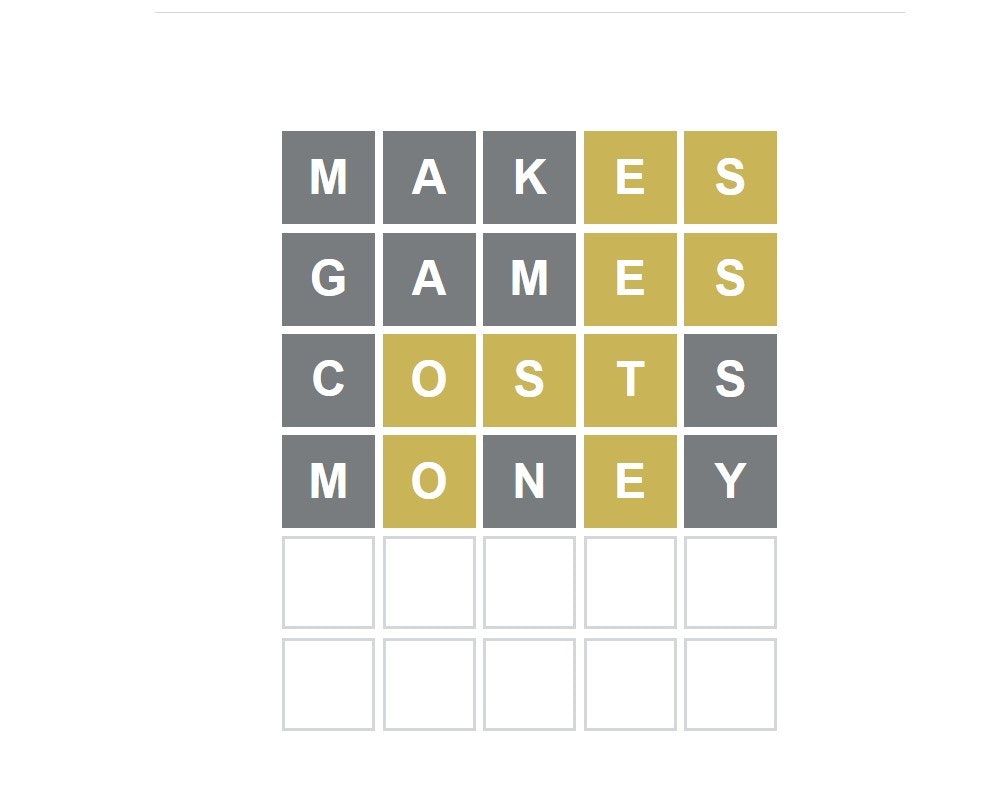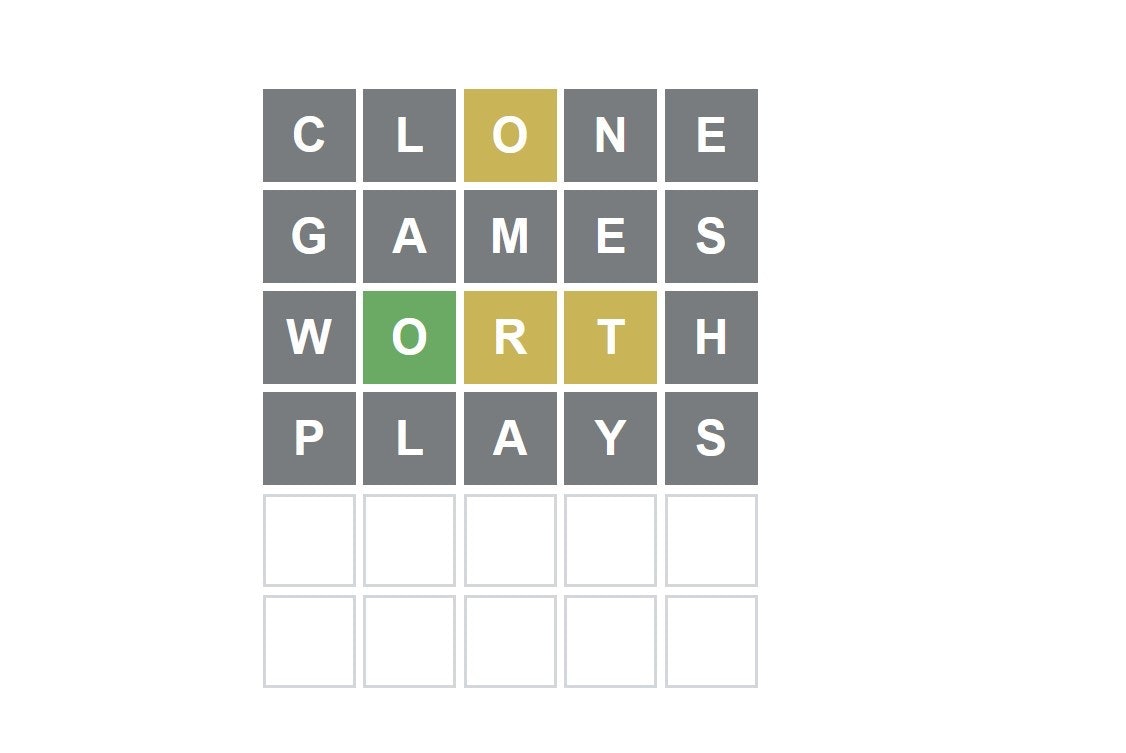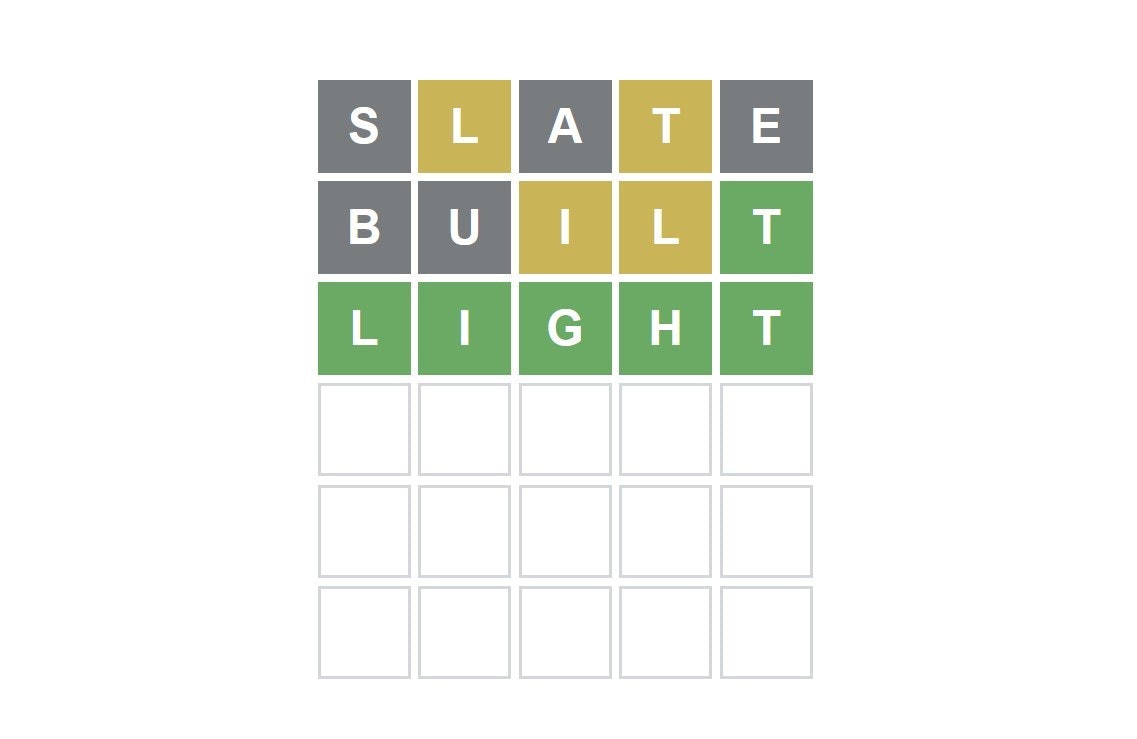
Wordle, the free web-based game that now welcomes millions of active players each day, has been bought by The New York Times for a seven-figure price, and many of its fans aren’t thrilled with the news of the acquisition. While the potential downsides to the move are more than a little obvious, like possible confrontation with NYT’s infamous paywall, the news isn’t all bad. In many ways, the exchange of funds allows this amazing game to enjoy the fruits of a long future. It also gives a talented creator his just desserts for bringing us so much joy.
Wordle is free for you, but its future costs money
While it may seem easy for a lone creator like Josh Wardle to make a free website to support a simple game like Wordle, the reality of the situation is that the project’s sudden popularity has likely proven costly for the man who made it. Server pricing and plans may vary, but it’s not unreasonable to think a site with thousands of concurrent users at any given moment might cost tens of thousands of dollars each month to run.

While it’s true Wordle users might only be engaged with Wardle’s platform for a few minutes per day, it’s still being accessed by an English-speaking audience of millions across the globe. Let’s also not forget that some of those individual players might also double dip each day by clearing their browser caches or switching to other browsers to take another crack at the daily puzzle. The game may be simple to access, but that access costs money.
Now that Wordle is owned by The New York Times, it has the support of a larger subscription-based infrastructure to keep it afloat regardless of the number of users that engage with it. Given the cost of effective servers, it doesn’t seem like the current plan for Wordle was indefinitely sustainable. Now, the road to success is far more clear of financial concern.
Freedom to create at NYT and elsewhere
Beyond finances, The New York Times owning Wordle also offers potential avenues for creativity that Wardle likely couldn’t have shouldered as a one-person team. It means a much larger team of skilled wordsmiths inside NYT has a chance to adapt and use the Wordle formula and name to attract new audiences.
In addition to the traditional five-letter game, what about a seven-letter variant with more complex rules? On the other end of the spectrum, a separate simplified version of Wordle can now exist as an educational tool. All these possible side projects couldn’t be overseen by a single developer of a free game, but funding from The Times allows opportunities for them to exist.

Better still is the potential knock-on effect this news has for other smaller creators like Wardle. If Wordle were to someday be swallowed up by NYT’s subscription model, that move offers a clear path for someone else to create the next free word puzzle craze using Wordle’s successful model of daily, ad-free fun with social media hooks. We’ve already covered several different Wordle clones worth playing, and this purchase offers all the more reason for those developers to double down on what they’ve made. There’s a clear runway for the next free success story while Wordle continues to grow.
Let’s also not forget that Wardle might spend his millions to make something new. With that money, he may be able to create something bigger, more expansive, and even better than the Wordle we currently know.
Giving a talented developer what he deserves
The early months of 2022 have been a strange time for games industry acquisitions. Microsoft and Sony’s purchase of Activision Blizzard and Bungie, respectively, generate an obvious concern for increased consolidation and corporate greed. If maligned executives like Activision’s Bobby Kotick are expected to receive hundreds of millions of dollars for selling Activision’s wares to Microsoft, how can acquisitions be viewed as a good thing?

That mindset is understandable, but it’s important to remember the story of Wordle and The New York Times is decidedly different. Wardle is a single developer with a day job as a Product Manager at Reddit. He initially made Wordle so his wife could have something fun to play during the pandemic. This is a simple story of a simple creator getting his due pay for an amazing product that will no doubt define 2022 and beyond.
The game was designed as a free and fun product, and hopefully, it stays that way. But Wardle’s work has been beloved by millions and kicked off an entire cottage industry of creators following in his wake. The chance to earn a living off a simple idea is what every American dreams of, and Wardle has made that lofty goal a reality with a smartly designed game free of microtransactions, ads, or NFTs. This isn’t a tale of some executive getting rich quickly. It’s an example for all of us to be mindful of. As unlikely as it seems, there’s a limitless possibility for any of us to make, and be rewarded for, the next Wordle.







